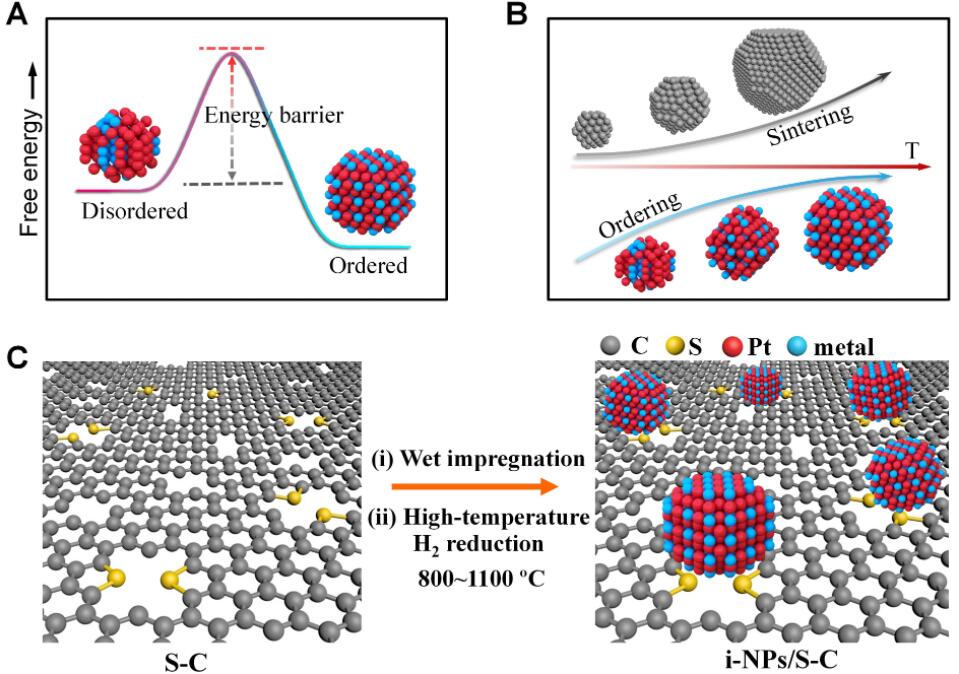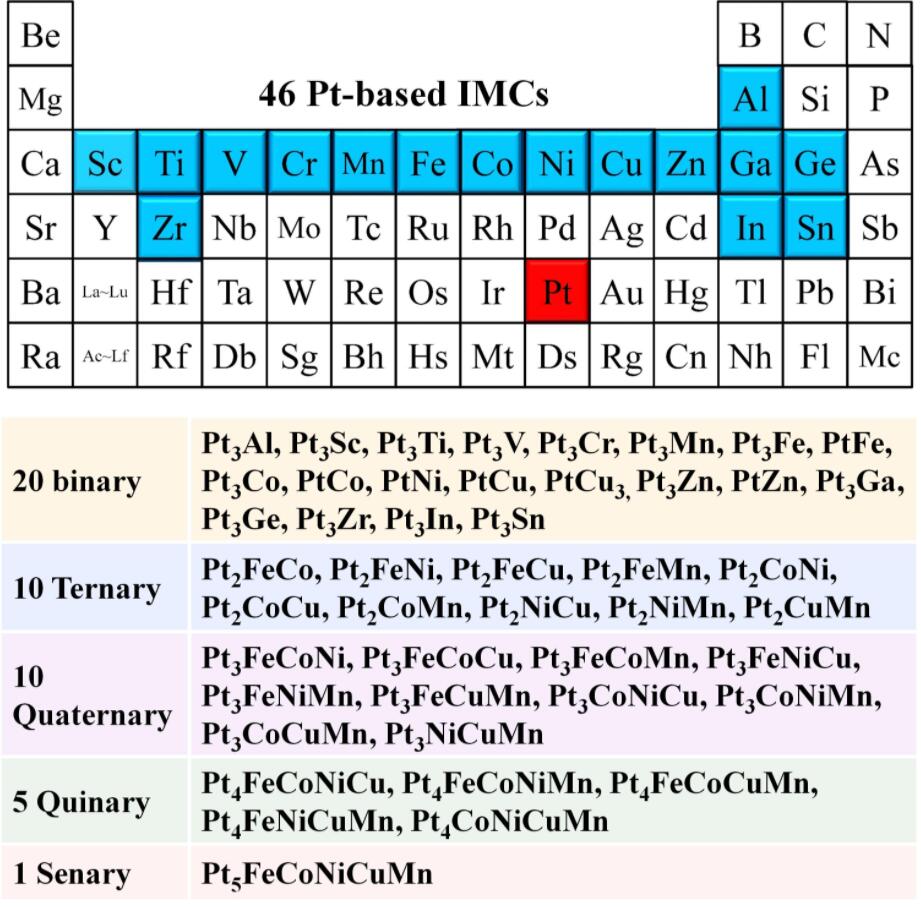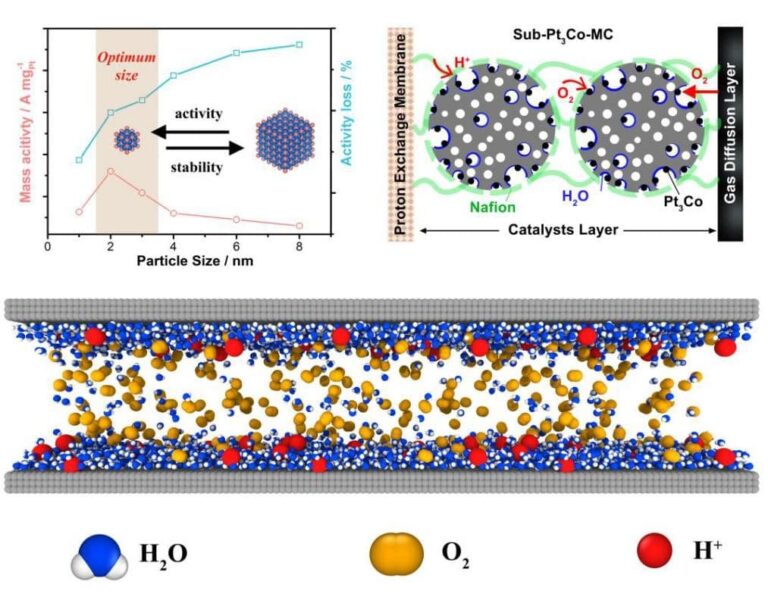In achieving the same level of fuel cell performance, the team uses only one-tenth of the expensive platinum.
(Photo credit: USTC)
High costs are one of the major factors holding back the development of fuel cell technology, and a new study by a Chinese team promises to this problem.
The team of Professor Liang Haiwei from the University of Science and Technology of China (USTC) and Professor Shui Jianglan from Beihang University have collaborated to develop a family of high-performance platinum-based hydrogen fuel cell catalysts, the Hefei, Anhui-based USTC said today.
The catalyst family is important for reducing the cost of hydrogen fuel cells and promoting their large-scale industrialization, according to an announcement posted on USTC's official website.
(Photo credit: USTC)
Hydrogen fuel cells work by converting chemical energy into electrical energy through hydrogen oxidation and oxygen reduction reactions between hydrogen and oxygen in the air at the anode and cathode of the cell, respectively.
The cathode of a hydrogen fuel cell requires a large amount of platinum-based catalyst to catalyze the oxygen reduction reaction. However, platinum is a precious metal, which makes hydrogen fuel cells expensive.
Developing highly active catalysts and reducing the amount of platinum used is the key to the large-scale commercialization of hydrogen fuel cells.
The team has successfully prepared 46 platinum-based alloy fuel cell catalysts using a high-temperature "sulfur solid gel" synthesis method.
From these catalyst families, the researchers have selected several highly active catalysts that enable hydrogen fuel cell performance to reach the world's current advanced level, according to the statement.
(Photo credit: USTC)
The platinum-nickel alloy catalysts they synthesized are more than five times more active than commercially available platinum-carbon catalysts. In achieving the same level of fuel cell performance, they use only one-tenth the amount of platinum.
Professor Liang said that their method for preparing high-performance platinum alloy hydrogen fuel cell catalysts is a universal approach that promises to significantly reduce platinum use and thus fuel cell costs.
The study was published on October 22 in the journal Science.
Link to the paper: https://www.science.org/doi/10.1126/science.abj9980



